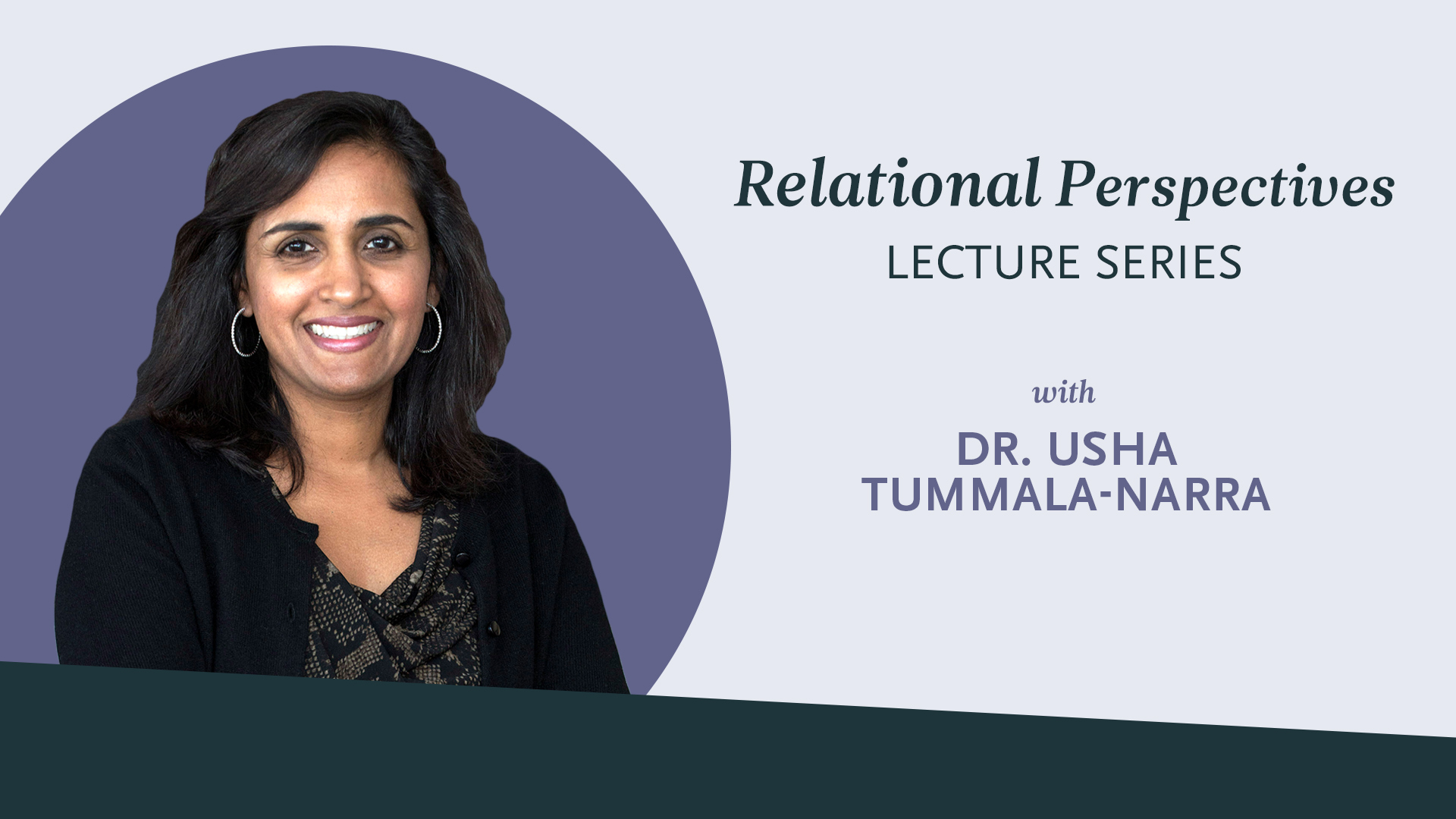Relational Perspectives Series with Dr. Usha Tummala-Narra: Why the Hate?

We are honored to welcome Dr. Usha Tummala-Narra, Associate Professor in the Department of Counseling, Developmental, and Educational Psychology at Boston College and author of Psychoanalytic Theory and Cultural Competence in Psychotherapy for our annual Relational Perspectives Series.
On Friday, September 20, Dr. Tummala-Narra will offer an evening lecture entitled “Why the Hate?: Psychoanalytic Perspectives on Immigrants, Race, and Caste in Contemporary U.S.”
The growing visibility of racial minority immigrants in the United States has triggered a sense of collective anxiety, where dissociative defenses maintain emotional distance and identification with groups perceived to be threatening. Recent policies in the U.S., such as those resulting in heightened policing of Black and Brown people and deportation of undocumented immigrants and separation of children from parents have made explicit the connection between racism and xenophobia. These policies and the broader xenophobic and racist sociopolitical climate in which they are implemented have important implications for intrapsychic life and interpersonal relationships.
This presentation will explore psychoanalytic perspectives on the roots of xenophobia, racialized defenses, and their implications for the experiences of racial minority immigrants in the U.S. The presentation further addresses how the fear of immigrants reflects anxiety in multiple dimensions, involving not only fears of the receiving context or the host country, but also the xenophobia that immigrants carry with them from their countries of origin. Caste is one such illustration of the discriminatory frameworks that immigrants may transport with them to the new country. The implications of xenophobia and racism will be explored in the context of the therapeutic relationship.
Registration for Friday’s lecture includes 1.5 CEUs.
Dr. Tummala-Narra will return to The Seattle School for an all-day workshop on Saturday, September 21, 9:00am-3:30pm on “Culturally Informed Psychoanalytic Psychotherapy.” This clinical workshop is intentionally designed for Seattle School alumni and current students and is not open to the general public.
The Seattle School of Theology & Psychology is proud to partner with the Northwest Alliance for Psychoanalytic Study to offer the Relational Perspectives Series. The Alliance is a non-profit interdisciplinary organization dedicated to making psychoanalytic knowledge available and useful to interested professionals and the larger community in the Pacific Northwest. Membership is open to professionals in mental health, health care, and human services, regardless of academic discipline, who seek the deeper human understanding that psychoanalysis can provide. Visit nwaps.org to learn more.

Usha Tummala-Narra, Ph.D. is an Associate Professor in the Department of Counseling, Developmental, and Educational Psychology at Boston College. She is also in Independent Practice in Cambridge, MA. Her scholarship focuses on immigration, trauma, race, and cultural competence and psychoanalytic psychotherapy. She has served as the chair of the Multicultural Concerns Committee in American Psychological Association Division 39 (Psychoanalysis), and as a member of the APA Committee on Ethnic Minority Affairs, the APA Presidential Task Force on Immigration, and the APA Task Force on Revising the Multicultural Guidelines. She is currently a Member-at-Large on the Board of Directors of APA Division 39, and a member of the Committee on Racial and Ethnic Diversity in the American Psychoanalytic Association. She is the author of Psychoanalytic Theory and Cultural Competence in Psychotherapy, published by APA (American Psychological Association) Books in 2016.
The Relational Perspectives Series was founded by Dr. Roy Barsness with the vision of creating an intimate, accessible environment to engage with relational and analytic theorists and clinicians who are contributing innovative, compelling work to the fields of psychology and psychotherapy.
